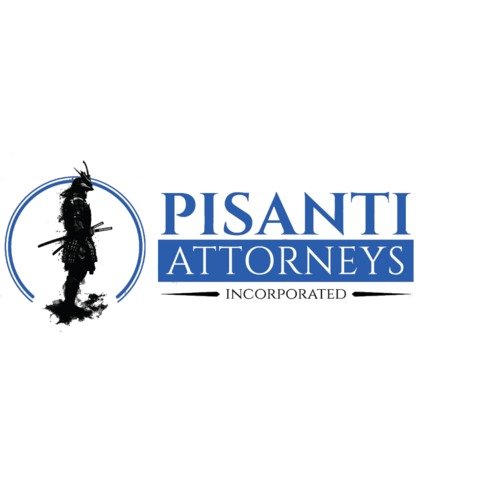Best Bankruptcy Lawyers in Germiston
Share your needs with us, get contacted by law firms.
Free. Takes 2 min.
List of the best lawyers in Germiston, South Africa
About Bankruptcy Law in Germiston, South Africa
Bankruptcy in Germiston, South Africa, is governed by both national and regional legal frameworks aimed at managing insolvency, where an individual or business is unable to meet their financial obligations. The process is designed to offer relief to those in severe financial distress while ensuring fair treatment of creditors. Declaring bankruptcy can lead to the liquidation of the debtor's assets, or in some cases, a debt restructuring plan may be put in place. Understanding the nuances of bankruptcy law is crucial for effective navigation through financial insolvency.
Why You May Need a Lawyer
Engaging a lawyer when faced with bankruptcy can be critical for a number of reasons. A lawyer can help assess the severity of your financial situation, provide guidance on whether declaring bankruptcy is the best option, and help navigate the complex legal procedures involved. Legal help is particularly necessary in situations where creditors are aggressive, if there's a need to protect certain assets, or when you're unfamiliar with the intricate legal requirements. Debt mediation, negotiations, and representation in court are also circumstances where legal assistance is invaluable.
Local Laws Overview
The bankruptcy process in Germiston is regulated under the South African Insolvency Act, which outlines procedures for sequestration of a person's estate. Key aspects of local laws include the requirement for individuals to prove insolvency, the role of the Master of the High Court, and the appointment of a trustee to manage the process. The law also involves the Rehabilitation process, allowing discharged debtors to reintegrate into business life. The National Credit Act also plays a role in ensuring fair treatment and consideration for debtors.
Frequently Asked Questions
What is bankruptcy?
Bankruptcy is a legal process where a person or a business is declared unable to pay outstanding debts, leading to either liquidation of assets or restructuring of finances to pay off debts.
Who can file for bankruptcy?
In South Africa, individuals and businesses that are unable to meet their debt obligations can file for bankruptcy, provided they can demonstrate to the court that they are indeed insolvent.
What are the consequences of declaring bankruptcy?
Declaring bankruptcy can lead to the liquidation of assets to pay off creditors, restrictions on obtaining further credit, and a potential impact on your credit score. However, it can also relieve some of the pressure from creditors.
How long does the bankruptcy process take?
The duration of the bankruptcy process can vary, usually taking several months, depending on the complexity of the case and the efficiency of legal proceedings and liquidation processes.
Can all debts be discharged through bankruptcy?
Not all debts can be discharged through bankruptcy. Certain debts, such as student loans, taxes, and maintenance payments, often cannot be eliminated through this process.
How can I protect my assets in bankruptcy?
An attorney can advise on which assets are exempt from liquidation and assist in protecting assets through legal exemptions.
What is the role of a trustee?
A trustee is appointed to manage the debtor's estate and is responsible for the distribution of proceeds from liquidated assets to creditors.
Can I file for bankruptcy without a lawyer?
While legally possible, it is not advisable to file for bankruptcy without a lawyer due to the complex nature of bankruptcy law and the risk of overlooking critical legal obligations and entitlements.
What happens after bankruptcy?
After bankruptcy, the individual may seek legal rehabilitation to regain financial independence and the ability to engage in business transactions.
Is there an alternative to bankruptcy?
Yes, alternatives include debt consolidation, debt restructuring, and negotiation with creditors through debt review processes.
Additional Resources
Individuals seeking advice on bankruptcy can contact the National Credit Regulator, the South African Law Reform Commission, or local bankruptcy attorney services in Germiston. The Master of the High Court's office can also provide guidelines on the insolvency process.
Next Steps
If you are considering bankruptcy as an option, it is essential to gather all financial documentation and seek a consultation with a bankruptcy lawyer in Germiston. They will offer expert advice tailored to your circumstances and help you understand the full scope of your legal rights and obligations. You may also consider contacting credit counselors or financial advisors for a holistic view of your financial situation.
Lawzana helps you find the best lawyers and law firms in Germiston through a curated and pre-screened list of qualified legal professionals. Our platform offers rankings and detailed profiles of attorneys and law firms, allowing you to compare based on practice areas, including Bankruptcy, experience, and client feedback.
Each profile includes a description of the firm's areas of practice, client reviews, team members and partners, year of establishment, spoken languages, office locations, contact information, social media presence, and any published articles or resources. Most firms on our platform speak English and are experienced in both local and international legal matters.
Get a quote from top-rated law firms in Germiston, South Africa — quickly, securely, and without unnecessary hassle.
Disclaimer:
The information provided on this page is for general informational purposes only and does not constitute legal advice. While we strive to ensure the accuracy and relevance of the content, legal information may change over time, and interpretations of the law can vary. You should always consult with a qualified legal professional for advice specific to your situation.
We disclaim all liability for actions taken or not taken based on the content of this page. If you believe any information is incorrect or outdated, please contact us, and we will review and update it where appropriate.









